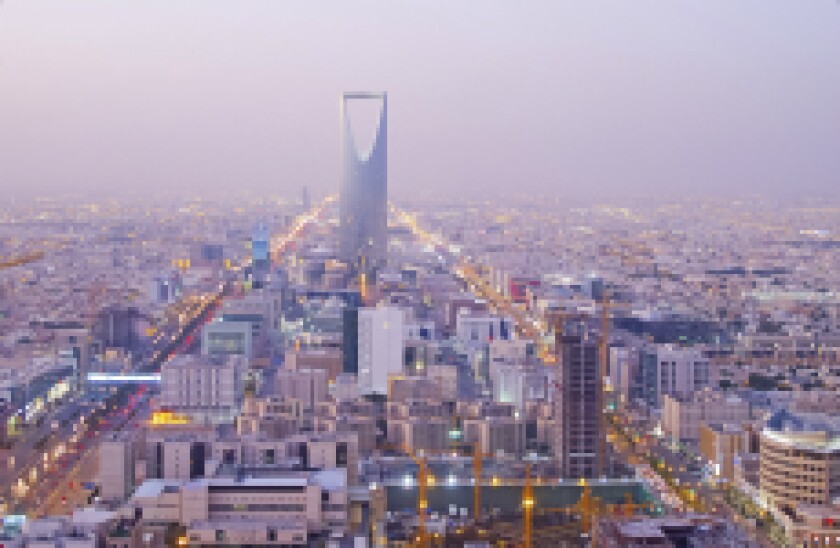Saudi Arabia’s plans include diversifying into tourism, renewable energy and the mining sector as well as defence and high tech manufacturing. Women’s rights were also identified as a key area of reform, with the Kingdom intending to increase the participation of women in the workforce from 22% to 30%. There were also plans to reform its visa system to allow Muslim expatriates to live in the country on a longer-term basis.
The vision include details of plans to float 5% of oil giant Saudi Aramco — said to be worth more than $2.5tr — in what could be the biggest initial public offering in history. It will be converted into a holding company with all of its financial information to be made transparent and with the board to be elected.
Key to its vision is the transformation of Saudi Arabia's $160bn public investment fund into a $2trn sovereign wealth fund. The fund is to be headquartered in the King Abdullah Financial District, a development that remains under construction and which the Saudi government hopes will eventually become a regional hub for finance.
As part of the measures the Saudis are planning capital market reforms that will include the introduction of a derivatives market and efforts to improve the liquidity profile of investments listed in Saudi Arabia. A source at a fixed income fund with considerable investments in Saudi Arabia outlined some of the opportunities available to the Saudis.
“Saudi Arabia’s sovereign wealth fund is going to be so large that it could buy Google, Apple and Facebook in one go,” he said.
“Saudi Arabia see technology and finance as two key areas for potential investment as they believe that this is where the future of the global economy lies.”
“In terms of building a financial services centre to rival the likes of Dubai and London there are many people in the Saudi government that are aware of the difficulties in attracting foreign talent and I can assure you that generous salaries will be on offer to help them diversify their economy. In a few years time you will not laugh at the idea of bankers moving to Saudi Arabia.”
The challenges of a Saudi posting
Conversion from Islam brings with it the death penalty and the practice of other religions is forbidden, although in practice permitted in private.
“Unfortunately there remain challenges to living in Saudi Arabia,” he said.
“Not everyone in Saudi Arabia shares the vision and liberalising instinct of much of the Saudi leadership and drinking alcohol, for example, is a problem as it is impossible to legally get hold of, a different situation when compared with Dubai.”
“However I would compared the situation in Saudi Arabia now to how Oman was 20 years ago and yet Oman is now a great holiday destination and a comparatively liberal country by regional standards”.
He made a defence of the Kingdom, arguing that the threats facing the country remain overblown. Last year it began the construction of a 600 mile fence to keep out ISIS and it remains involved in a civil war in Yemen involving the country’s Shiite militias.
“Clearly Saudi Arabia is operating in a high-beta part of the world and is not immune from the problems elsewhere in the region,” he said.

